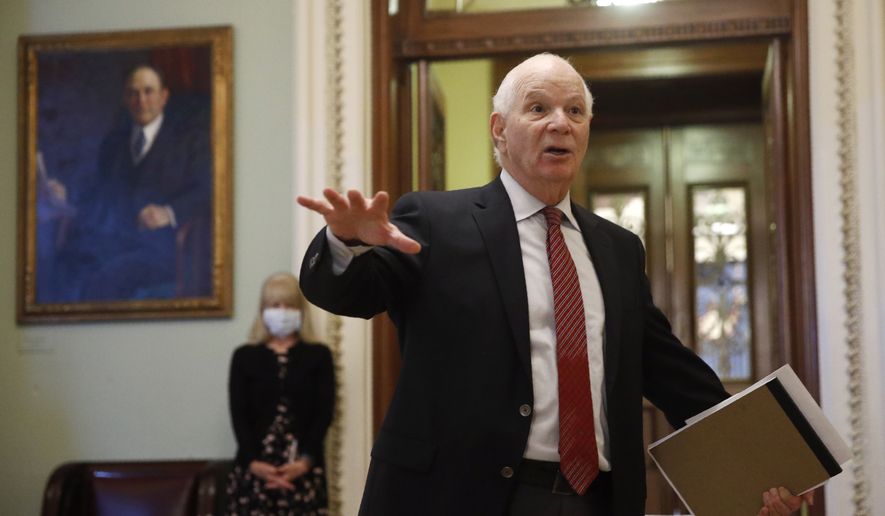Senate Majority Leader Charles E. Schumer is rushing to prevent a revolt by senior Democrats in his caucus who bristle at being cut out of the bipartisan $1.2 trillion infrastructure deal.
The anger is most notable among committee chairs. Many have waited more than a decade for Democrats to control both the White House and Congress only to see their hopes for passing a big infrastructure package usurped by a bipartisan group of 10 lawmakers.
“Some of these guys have never chaired a committee,” said an aide to a senior Democrat, who requested anonymity to discuss the topic. “They’re angry at having a potential spending bonanza bypass them, when their committees rightfully have purview over the matter.”
Mr. Schumer plans to hold a vote to begin a debate on the package as early as Wednesday evening. The quick timeline is to push senior Democrats and at least 10 Republicans to go on record in favor of the proposal.
Democratic leaders fear that waiting any longer will only give the committee chairs more time to stew about being left out of crafting the deal.
The tension among senior Democrats and the bipartisan group has been on display for some time.
SEE ALSO: Bipartisan lawmakers reach ‘final agreement’ on $1.2 trillion infrastructure deal
Senate Environment and Public Works Committee Chairman Tom Carper, for instance, has pledged to oppose the package unless it includes money authorizing a water and sanitation bill he shepherded through the Senate this year.
“The expectation all along was that our bill would be funded, fully funded, and it hasn’t yet,” said Mr. Carper, Delaware Democrat. “We’ve been fighting to make sure that what I thought was a smart policy, really smart policy … don’t want to see us walk away from that, so we’re going to get as close to that as we can.”
When asked Wednesday if he would support the package, Mr. Carper said he would wait and see the final parameters before deciding.
“My hope is that the seeds that we planted have taken root … let’s just see how it plays out,” he said.
Likewise, Sen. Benjamin Cardin of Maryland is signaling his ire over not being included in the negotiations, despite chairing a subcommittee with purview over infrastructure.
“They just sort of went on their own,” said Mr. Cardin, who chairs the Environment Committee’s subpanel on transportation and infrastructure. “That’s not the way they should have done it.”
A similar situation is brewing on the other side of the Capitol, where Rep. Peter DeFazio, Oregon Democrat and chairman of the House Transportation Committee, is refusing to be a “rubber stamp” for the bipartisan deal.
“At the moment they just want to send over the bipartisan bill and say we have to take it,” Mr. DeFazio said recently. “Which I’m not willing to do. … I’m not taking it.”
Mr. DeFazio said he wants to see a package that includes sweeping climate change provisions, as well as thousands of earmarks for individual lawmakers.
Democratic leaders, however, say they believe that committee chairs such as Mr. DeFazio and Mr. Carper will be brought on board.
A potential selling point for backing the infrastructure deal is that it’s been linked to a $3.5 trillion social welfare bill.
The bigger legislation, which is packed with liberal priorities, is set to pass without Republican votes in a process known as budget reconciliation, which allows some spending and tax measures to avoid the 60-vote threshold needed to get past a filibuster and pass with 51 votes.
House Speaker Nancy Pelosi, California Democrat, already has pledged not to move the bipartisan infrastructure deal unless reconciliation comes first.
Sen. Joe Manchin III of West Virginia, who holds a key Democratic swing vote, earlier this week summed up bipolar choice lawmakers will have to face.
“I would say if the bipartisan infrastructure deal falls apart, everything falls apart. Both of them are extremely important,” said Mr. Manchin. “When one falls apart, how do you move the other one?”
• Haris Alic can be reached at halic@washingtontimes.com.




Please read our comment policy before commenting.